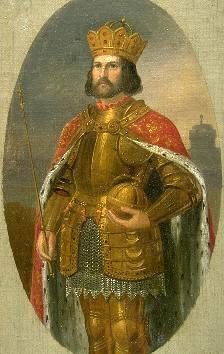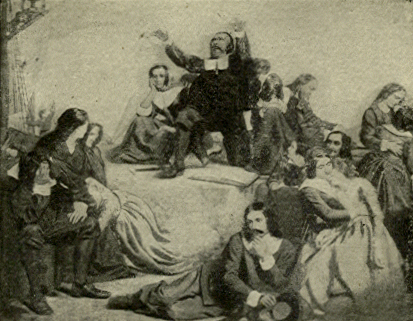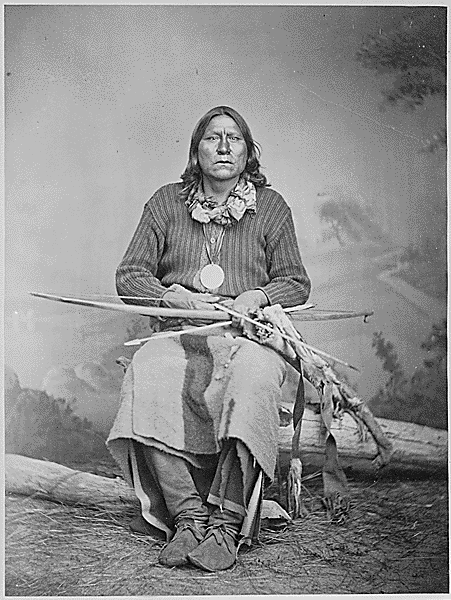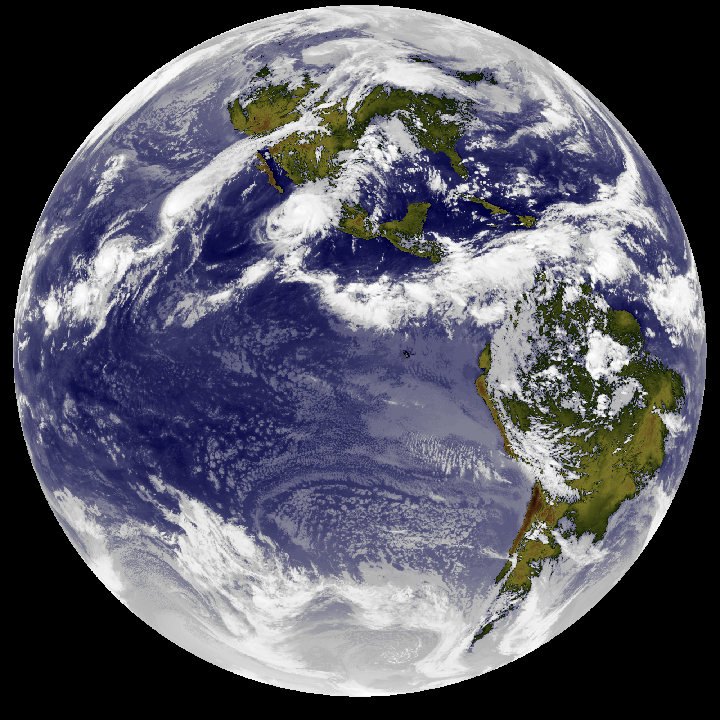NAVIGATION COLUMN
Home Page
Yahoo Groups:
History 1 Day 2
Nuremburg Data
Daily History Pages:
In Calendar Form
FAIR USE NOTICE: This site could contain copyrighted material the use of which has not always been specifically authorized by the copyright owner. We are making such material available in our efforts to advance understanding of historical, political, human rights, economic, democracy, scientific, environmental, and social justice issues, etc. We believe this constitutes a 'fair use' of any such copyrighted material as provided for in section 107 of the US Copyright Law. In accordance with Title 17 U.S.C. Section 107, the material on this site is distributed without profit to those who have expressed a prior interest in receiving the included information for research that could include educational purposes. If you wish to use copyrighted material from this site for purposes of your own that go beyond 'fair use', you could most likely need to obtain permission from the copyright owner.
|
October 4

1209 Otto IV is crowned Holy Roman Emperor. Within three years he will invade Tuscany, Sicily and southern Italy.

1289 Birth: Louis X (the Stubborn), king of France (1314-16).

1535 London printer Miles Coverdale, 47, publishes his English version of the Bible. A good translator who will later serve on two other translation committees, Coverdale is also popular as a Lutheran preacher.
1582 Today is the last day of the Julian Calendar in the Papal states, Spain and Portugal. Pope Gregory's Gregorian calendar will take effect the next day, which becomes 15 October to allow for the 10-day error which the Julian system had accumulated.

1626 Birth: Richard Cromwell, lord protector of England (1658-59).

1636 The first code of law for the Plymouth Colony is instigated. "This early document in America's history foreshadows numerous enduring principles later enshrined in the founding of the United States: government by consent, a democratic republic, term limits, due process, civil rights, etc." Note: A most interesting document; well worth a look.

1648 Peter Stuyvesant establishes America's first volunteer firemen.

1675 Christian Huygens patents the pocket watch.
 
1777 US Revolutionary War: At Germantown, Pennsylvania, British General Sir William Howe repels George Washington's last attempt to retake Philadelphia, compelling Washington to spend the winter at Valley Forge.
1795 French Revolution: General Napoleon leads a rout of counterrevolutionaries in the streets of Paris, beginning his rise to power.

1822 Birth: Rutherford Birchard Hayes, (R) 19th president of the US (1877-1881), in Delaware, Ohio. "After the Civil War, Hayes served as member of the U.S. House of Representatives (1865-67) and then as governor of Ohio (1868-72, 1876-77). By 1876, Republicans recognized that the scrupulous Hayes -- a war hero from a populous swing state and a candidate acceptable to the major factions in the Republican party – was presidential material. "Availability" secured Hayes the nomination, but he faced a tough campaign. The nation was in the midst of an economic depression, the Grant administration was tarnished by scandals, and Democratic opponent Samuel J. Tilden of New York was a superb political organizer with a reform reputation. On Election Day, Tilden rolled up a plurality of 250,000 votes, but the vote in three southern states was close enough for both Republicans and Democrats to claim them and with those states the presidency. To decide who carried those states, Congress set up a special commission which awarded the disputed electoral college votes to Hayes, making him the winner. Outraged and frustrated, Democrats dubbed Hayes Rutherfraud and His Fraudulency..."
1824 The republic of Mexico is proclaimed.
1830 Belgium forms itself into an independent state, having been part of the Netherlands since 1815. One year after independence, Belgium will become a constitutional monarchy. In 1977 the country is divided into 3 regions: Flanders (the Dutch-speaking region in the north), Wallonia (the French-speaking region in the south) and Brussels, the capital region, which is predominantly Francophone.
1853 Turkey declares war on Russia.
1854 Abraham Lincoln makes his first great political speech while attending the Illinois State Fair in Springfield.

1860 Birth: Sidney Paget, illustrator.
1861 The Union ship USS South Carolina captures two Confederate blockade runners outside of New Orleans, Louisiana.

1861 Birth: Frederic [Sackrider] Remington, US artist, Western painter and sculptor of the American West.

1874 Kiowa leader Satanta, known as 'the Orator of the Plains', surrenders in Darlington, Texas. He is later sent to the state penitentiary, where he apparently commits suicide on 11 October 1878.
1878 The first Chinese embassy opens in the United States when Chen Lan-Pin presents his papers as envoy to President Hayes.
1878 The Orient Express begins its first journey.
1879 Birth: Edward Murray East, botanist whose research will lead to the development of hybrid corn.
1881 Edward H. Leveaux of Surrey, England receives a US patent on this date for his completely automatic player piano.
1881 Birth: Walther von Brauchitsch; German general and field marshal-general from 1940; Commander-in-Chief of the German army (OKH) from February 4, 1938 until dismissed and forced to retire on December 19, 1941, by Hitler, who will assume the post himself. Brauchitsch will die on October 18, 1948, in the British Military Hospital at Hamburg.

1892 Birth: Engelbert Dollfuss, Austrian Fascist chancellor killed by the Nazis.

1895 Birth: Buster [Joseph F.] Keaton, star of silent film comedies including Sherlock Jr, The General, The Navigator, Steamboat Bill.

1904 Death: Frederic Auguste Bertholdi, French sculptor (Statue of Liberty).
1905 Orville Wright pilots the first flight that is longer than 30 minutes; 33 minutes, 17 seconds covering a distance of 21 miles.
1910 King Manuel II flees to England as Portugal becomes a republic.
1912 Nicaraguan General Zeledon, an opponent of US occupation, is executed.
1912 Theodore Roosevelt is shot by an assassin in Milwaukee, but insists on giving his speech before being taken to the hospital.
1914 WW1: The first German Zeppelin raid on London.
1918 WW1: General Pershing replaces a number of his assault divisions with rested troops from the Saint-Mihiel operation and renews the Argonne offensive. The US First Army batters its way slowly forward in a series of costly frontal attacks, but the Argonne Forest is finally cleared. The French Fourth Army, on the left, advances to the Aisne River.
1918 WW1: The Germans ask the Allies for an armistice.
1930 The President of the No. 4 Court of the Supreme Court of Leipzig sums up Hitler's testimony: "Adolf Hitler declared under oath…in quite unmistakable terms that he intended to pursue his aims by strictly legal means, that it was only under duress that he adopted the course he did in Munich in November 1923 and that if he abandoned that course it was because illegal action as no longer necessary in view of the growing sympathy felt in Germany for the volkish liberation movement; he would he said, attain power in due course by legal means."
1932 The Lytton report, on behalf of the League of Nations, condemns Japan's aggression in Manchuria but tempers its criticism by proposing that Japan be granted certain preferred rights in an autonomous Manchuria. Japan serves notice of its withdrawal from the League of Nations.

1933 Albert Einstein addresses a crowd of 10,000 in London's Albert Hall during the opening of a campaign to collect $5,000,000 for exiled German scientists.

1936 Holocaust: Hans Frank draws up a program to remove all Jewish influence from German jurisprudence. (Edelheit)
1936 Holocaust: The Reich Chamber of Culture orders all Jewish art dealers in Berlin to close their galleries by the end of the year.
1937 Amin al-Huseini, Grand Mufti of Jerusalem, flees Palestine for Lebanon.
1938 Holocaust: On the advice of Swiss authorities, the letter "J" is printed on the front pages of German Jews' passports.
1938 The French Cabinet decides to recognize Italy's conquest of Ethiopia.
1939 WW2: All French forces except for a light screen have withdrawn from Germany and returned to French territory. (Duffy)
1939 Diary of Leon Gladun: As soon as any food appears in the boxcar then immediately there's political discussions, talks about the war, reminiscences about food--in a word we're killing time as best we can. From time to time at stations we exchange some of our valuables for kopecks and in this way we have something for tobacco and a piece of bread. The only thing is that here things are expensive: tobacco is 65 kopecks while machorka [raw tobacco] is 35 kopecks.
1940 Those Vichy French: A new law gives Vichy France the power to intern Jews even outside the Unoccupied Zone. (Atlas)
1942 Holocaust: Beginning of deportation of all Jews from concentration camps in Germany to Auschwitz. (Persecution)

1943 Holocaust: Himmler summons his SS generals to Posen and informs them of the systematic murder of the Jews; in effect making accomplices of them all. "One principle must be absolute for the SS man: we must be honest, decent, loyal, and comradely to members of our own blood and to no one else. What happens to the Russians, what happens to the Czechs, is a matter of utter indifference to me. Such good blood of our own kind as there may be among the nations we shall acquire for ourselves, if necessary by taking away the children and bringing them up among us. Whether the other peoples live in comfort or perish of hunger interests me only in so far as we need them as slaves for our Kultur. Whether or not 10,000 Russian women collapse from exhaustion while digging a tank ditch interests me only in so far as the tank ditch is completed for Germany. We shall never be rough or heartless where it is not necessary; that is clear. We Germans, who are the only people in the world who have a decent attitude to animals, will also adopt a decent attitude to these human animals, but it is a crime against our own blood to worry about them and to bring them ideals. I shall speak to you here with all frankness of a very grave matter. Among ourselves it should be mentioned quite frankly, and yet we will never speak of it publicly. I mean the evacuation of the Jews, the extermination of the Jewish people.. . . Most of you know what it means to see a hundred corpses lying together, five hundred, or a thousand. To have stuck it out and at the same time - apart from exceptions caused by human weakness - to have remained decent fellows, that is what has made us hard. This is a page of glory in our history which has never been written and shall never be written.'"
1954 Pierre Boule's novel, The Bridge Over the River Kwai, is published in New York by Vanguard.
1955 The Reverend Sun Young Moon leaves prison in Seoul.

1957 The Soviet Union fires the first shot of the 'space race' with the launching of Sputnik, the world's first artificial (human-made) earth satellite. Soviet radio reports that the 'artificial moon', which weighs 184 pounds, is circling the earth once every hour and thirty-five minutes. It is launched by a converted Intercontinental Ballistic Missile (ICBM). After orbiting for about three months, in 1958 it will reenter the earth's atmosphere and burn up. From its altitude of 560 miles, Sputnik transmits signals back to earth strong enough to be picked up by amateur radio operators. Those in the United States with access to such equipment tune in, and listen in awe as the beeping Sputnik passes over the US seven times a day. Some fear sinister uses of the Soviet's new space technology, apparently strides ahead of the US space effort. Sputnik is fifty-two times the size of the first planned US satellite, which is not even scheduled to be launched until the following year. The Sputnik (meaning "companion" or "fellow traveler") is launched from Kazakhstan (Kazakh SSR).
1958 A 5th French republic is established.

1959 The USSR's Luna 3 is launched to the Moon, sending back the first photos of the Moon's far side.
1960 Courier 1B is launched, the first active repeater satellite in orbit.

1963 Gambia achieves full internal self-government.
1965 Pope Paul VI arrives in New York City on the first visit by a pope to the United States. During his packed one-day US visit, limited entirely to New York City, Pope Paul VI visits St. Patrick's Cathedral, meets with President Lyndon B. Johnson, and addresses the General Assembly of the UN. While speaking at the UN, Paul published a document exonerating the Jews of all blame in the death of Christ.
1965 The USSR launches Luna 7. It will crash land on the Moon in the Sea of Storms.

1966 Lesotho, formerly the British colony of Basutoland, achieves its independence and becomes a member of the Commonwealth. Now a National Day.
1968 Cambodia admits that the Viet Cong are using their country for sanctuary.

1969 The UN starts issuing postage stamps at its Geneva headquarters.
1972 Watergate: Judge John Sirca imposes a gag order on the break-in case.
1976 In Gregg v. Georgia, the US Supreme Court lifts a ban on the death sentence in murder cases. This restores the legality of capital punishment, which had not been practiced since 1967. The first execution following this ruling will be Gary Gilmore in 1977.
1977 India's former Prime Minister Indira Gandhi is released from police custody less than 24 hours after her arrest on charges of political corruption.
1980 Islamic representatives from 38 nations move to have the UN General Assembly call for a Soviet troop withdrawal from Afghanistan.
1984 The US government closes down due to budget problems.
1985 Shite Muslims claim to have killed hostage William Buckley.
1990 Former Colonel Alexander Noble launches a separatist insurrection in the southern Philippines and takes over the cities of Butuan and Caqayan de Oro.
1990 The German parliament has its first meeting since reunification.

1991 24 countries, including the United States, sign an agreement banning mineral and oil exploration in Antarctica for 50 years.
1992 The Mozambique government and RENAMO rebel leaders sign a historic peace accord, and a cease-fire to end the 16-year civil war in the Southeast African nation.
1993 Boris Yeltsin crushs a hardline Communist rebellion. After a 10-hour tank assault on the White House parliament building, he sacks vice-president Alexander Rutskoi and other opposition leaders are herded into Lefortovo jail.
1993 Defense Secretary Les Aspin decides to keep Admiral Frank Kelso as Chief of Naval Operations, despite his involvement in the 'Tailhook Scandal'.
1993 President Clinton orders several hundred more US troops to Somalia one day after the deaths of three Marines in Mogadishu.
1994 South African President Nelson Mandela is welcomed to the White House by US President Bill Clinton.
1995 Mercenary Bob Denard frees Comoran President Said Mohamed Djohar, ending a six-day coup.
1995 Hurricane Opal cuts a path of destruction through the Florida Panhandle, Alabama, Georgia and North Carolina.

1997 Death: Otto Remer, at his home in Marabella, Spain. He is said to have become an icon to several thousand Spaniards who adhered to Neo-Nazis doctrine. (N.Y. Times)
2001 Britain becomes first government to outline alleged evidence against bin Laden, saying he spoke of a "major attack on America" before the hijackings. (Full text of the Osama bin Laden evidence released by UK)

2001 Pakistan becomes first Muslim nation to say US evidence links bin Laden to the attacks and is enough to warrant an indictment.
2001 NATO allies grant United States access to airfields and seaports, agree to deploy ships and radar planes in war on terrorism.

2001 Anthrax strikes a Florida man who is hospitalized.

2001 According to US Secretary of Health and Human Services Tommy Thompson, making the announcement to reporters at the White House concerning the above Anthrax case, this is not in any way terrorist-related. He claims it is an isolated case and that sporadic instances of anthrax do occur in nature; it is not contagious.
2001 A Siberian Airlines jetliner explodes and plunges into the Black Sea, killing all 64 passengers and 12 crew members. The US says later that evidence shows the plane had been hit by a missile fired during a Ukranian military training exercise.
2001

2001

2004

2004

2004

^ Top of Page ^
Click Here to email the Webmaster of this site.
Web Page Design by Nathan
This page was last updated on September 12, 2005
|
